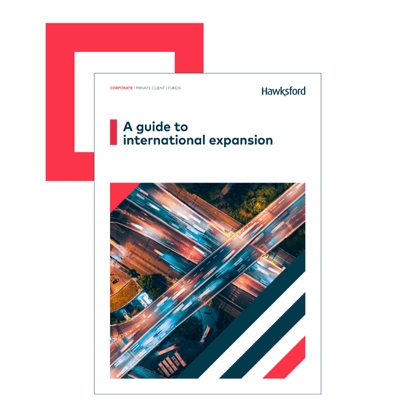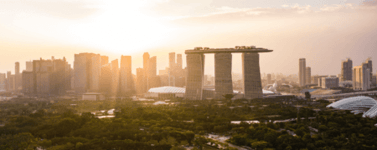Malaysia and Singapore are set to establish the Johor-Singapore Special Economic Zone (JS-SEZ), poised to reshape the economic landscape of Southeast Asia and create more business opportunities for the region.
Similar to other historically successful economic zones, such as in the Greater Bay Area of Southern China and Hong Kong, the JS-SEZ aims to boost the global competitiveness of Malaysia and Singapore.
Officially signed on 7 January 2025, efforts are already underway to improve the flow of goods and people between the two countries and allow businesses to capitalise on the strategic advantages of the JS-SEZ. If you’re planning to do business in Southeast Asia, this is an important project worth keeping an eye on.
What is the Johor-Singapore Special Economic Zone?
A landmark collaboration between Malaysia and Singapore, the JS-SEZ will cover more than 3,500 square kilometres in Johor and comprise nine designated flagship areas: Johor Bahru City Centre, Iskandar Puteri, Tanjung Pelepas, Pasir Gudang, Senai, Sedenak, Forest City, Pengerang Integrated Petroleum Complex (PIPC) and Desaru.
The JS-SEZ is well positioned to provide access to Singapore’s world-class infrastructure, as well as the added advantage of Johor’s lower overhead costs and extensive land availability. Once fully operational, the economic zone will include competitive tax incentives, simplified customs procedures and more features to support the different types of businesses growing here.
The JS-SEZ may be particularly beneficial for businesses operating in the following sectors:
- Manufacturing
- Logistics
- Food security
- Tourism
- Energy
- Digital economy
- Green economy
- Financial services
- Business services
- Education
- Health
Why set up a business in the JS-SEZ?
Special Economic Zones (SEZs) around the world have proven successful in enhancing business opportunities in various countries and regions. Some of the most prominent ones include the Shenzhen SEZ in southern China, near Hong Kong, and the Dubai Multi Commodities Centre (DMCC) in the United Arab Emirates (UAE).
With strong cross-border collaboration and targeted initiatives, the JS-SEZ also has the potential to offer a conducive environment for business growth. Already, Singapore and Malaysia share a close bilateral trade relationship and are often each other’s leading trading partner among the Association of Southeast Asian Nations (ASEAN) members.
According to a statement from Singapore's Ministry of Trade and Industry (MTI), Malaysia was Singapore’s third largest trading partner in 2023. Likewise, Singapore was Malaysia’s second largest trading partner, as well as its largest source of foreign direct investment (FDI). As both countries continue advancing the JS-SEZ, there is an opportunity to twin your presence in Johor and Singapore. Take, for example, setting up your manufacturing operations in Johor and establishing a regional headquarters in Singapore.
For growth in the wider ASEAN market, the JS-SEZ is also worth considering. In fact, as expressed at the JS-SEZ Business and Investment Forum attended by government representatives, there is a shared ambition to transform the economic zone into ASEAN’s next investment powerhouse.
Here’s what you can expect when setting up your business in the JS-SEZ:
Increased ease of doing business
As a start, Malaysia and Singapore are aiming to support 50 businesses within the first five years and double that figure by 2035, generating around 20,000 skilled positions in the process. Malaysia has already introduced the following JS-SEZ tax incentives:
- 15% personal income tax rate: For eligible knowledge workers employed in the zone (this will be applicable for ten years)
- Accelerated Capital Allowance (ACA): Covers up to 60% on qualifying renovation expenses
- 5% corporate tax rate: For businesses involved in sectors such as artificial intelligence (AI), quantum computing, medical devices, and aerospace manufacturing (this will be valid for up to 15 years)
- Investment Tax Allowance (ITA): Applicable to 100% qualifying capital expenditure for certain sectors
- 40% stamp duty exemption: On commercial property transfers
- Deduction of up to RM1 million: Relevant to hallmark event sponsorships
A joint project office has been established in Singapore to help local firms identify market opportunities, form partnerships and understand available support schemes. The Singapore Economic Development Board (EDB), MTI and Enterprise Singapore are facilitating this. Malaysia has a similar approach with the recently launched Invest Malaysia Facilitation Centre - Johor (IMFC-J) in February 2025 that serves as a one-stop centre to streamline investment procedures.
Other upcoming initiatives in the JS-SEZ include a regulatory sandbox for the testing of innovative technologies and an ASEAN Industrial Park to support companies from Regional Comprehensive Economic Partnership (RCEP) countries.
Freer movement of goods and people
Both countries are also working towards strengthening their transport links and improving customs processes. Some early initiatives include:
- Faster procedures at customs for land-based cargo transfers
- Paperless cargo clearance through the Singapore Immigration & Checkpoints Authority’s (ICA) website or mobile app
- The Malaysia-Singapore Authorised Economic Operator (AEO) Mutual Recognition Arrangement (MRA) to save time transporting goods across borders
To encourage people to consider the JS-SEZ for work, existing passes like Malaysia’s DE Rantau Nomad Pass will be enhanced. Further complementing these efforts is the upcoming Johor Bahru-Singapore Rapid Transit System (RTS) Link, which is expected to commence operations by the end of 2026. The RTS Link will be able to carry up to 10,000 commuters per hour in each direction, providing another alternative for travelling between the two countries in the coming years.
Resources for employee development
Additionally, the JS-SEZ will ensure professionals working within the zone are industry-ready. This will come in the form of training courses in partnership with institutions such as the Johor Talent Development Council (JTDC). You can be assured of available resources to enable your employees to upskill and stay relevant in the long run.
Maximising opportunities for business growth in the JS-SEZ
If you’ve been considering establishing a presence in either Malaysia or Singapore, the JS-SEZ now presents an avenue where you’ll have the option of tapping into both markets’ strengths. We will continue to monitor the regulations and business incentives as additional details emerge.
Our team has extensive experience in managing and fulfilling the steps required for entity formation and administration, whether in Singapore, Malaysia or other ASEAN jurisdictions. For more information on cross-border business setup, please get in touch with us to discuss further.

Looking to invest in Southeast Asia or exploring opportunities in Malaysia and Singapore?
Contact us to learn how we can support your cross-border business setup
Updated on










